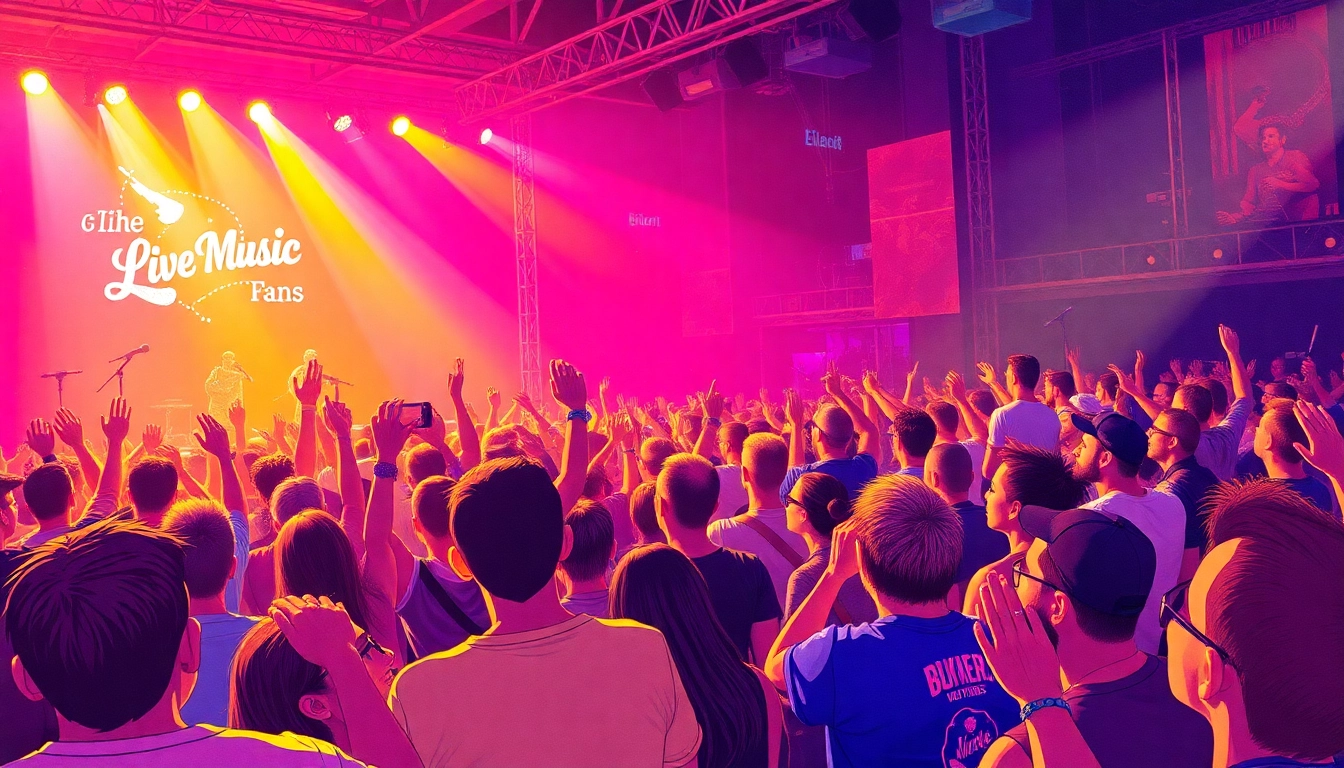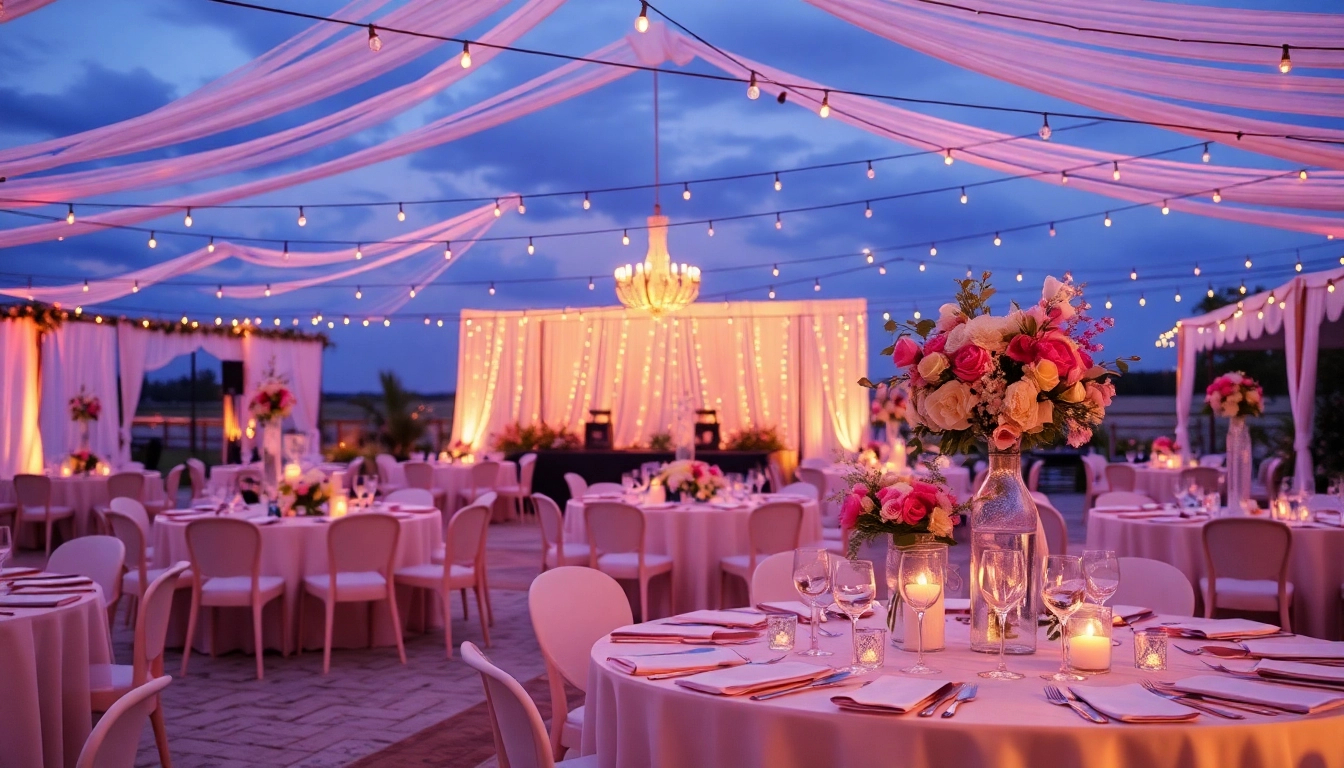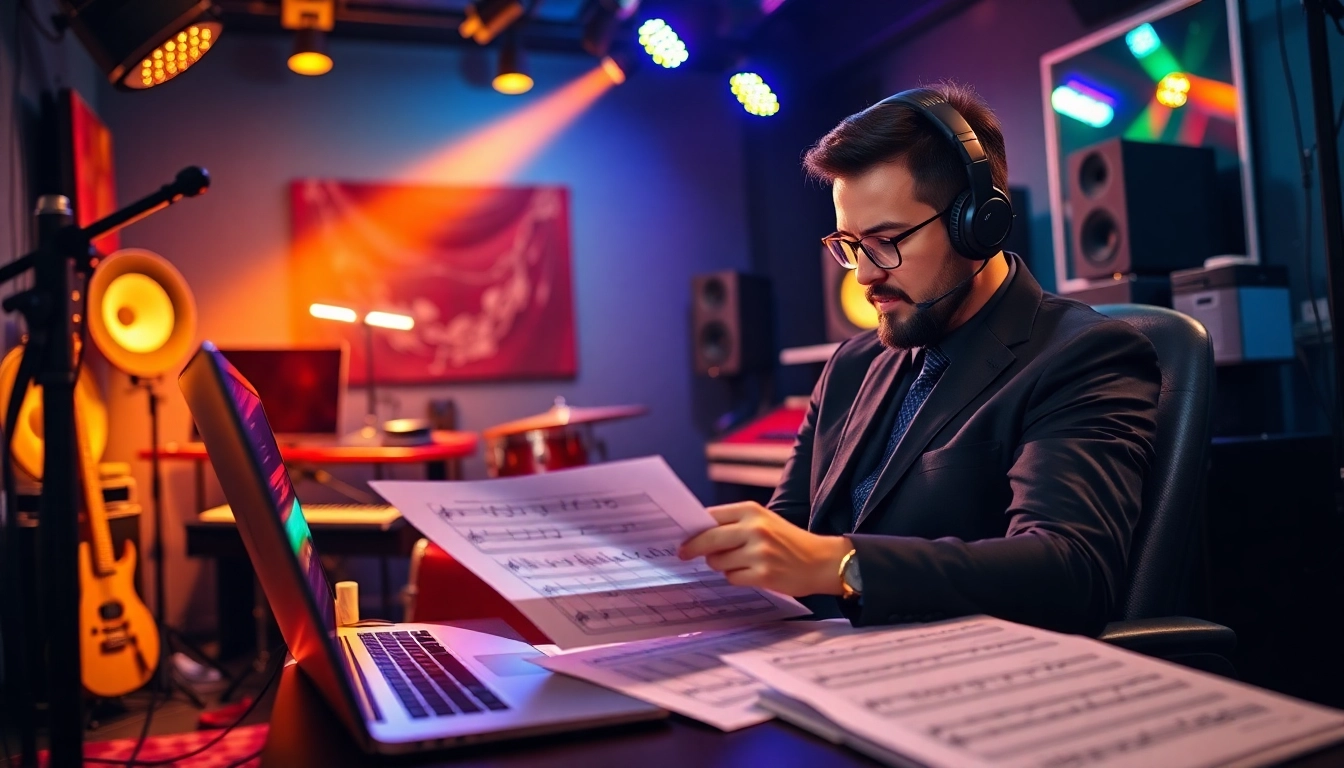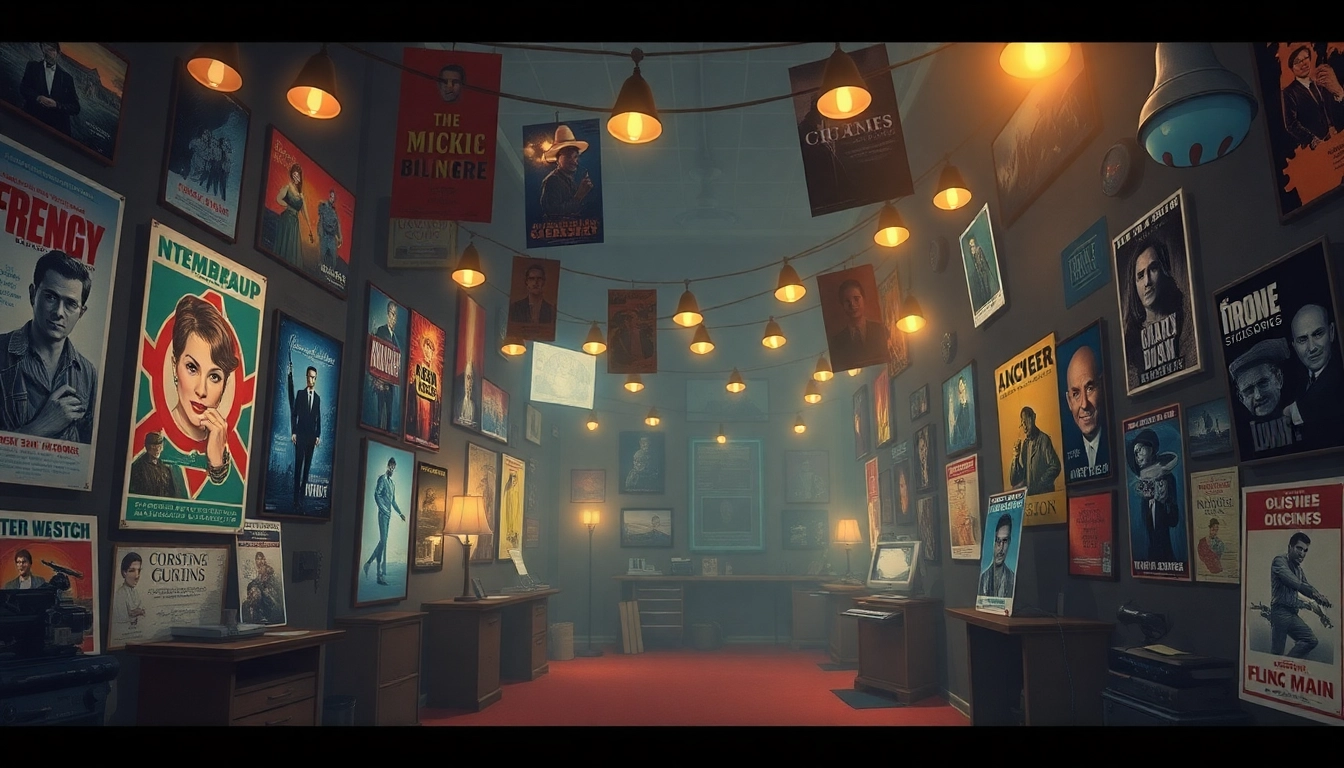Live music has a unique way of bringing people together, creating unforgettable experiences filled with energy, emotion, and connection. For many, attending live concerts is not just a pastime; it’s a lifestyle. Whether it’s a small local gig or a large festival, the essence of live performances captivates audiences worldwide, making live music fans an integral part of the music industry. Understanding who these fans are, why they value live music, and how their behaviors are evolving is crucial for organizers, artists, and venues aiming to create the most compelling experiences possible.
Understanding Live Music Fans
Who Are the Live Music Fans?
Live music fans encompass a diverse demographic, ranging from teenagers to older adults, and span various cultural and socioeconomic backgrounds. Typically, they share a few common characteristics: a deep passion for music, a willingness to spend on experiences, and a desire for connection — both with the artists and with others in their community. Many live music fans actively participate in music-related communities both online and offline, discussing their favorite artists, sharing experiences, and traveling for shows. Understanding these characteristics helps artists and promoters tailor their marketing strategies effectively.
Why Live Music Matters to Fans
The significance of live music extends beyond mere entertainment. For fans, attending a concert is about immersion in an art form that resonates on a personal level. Live shows evoke feelings that recorded music often cannot replicate, including the palpable energy of a crowd, instantaneous emotional connections with artists, and memorable shared experiences with friends and fellow fans. Furthermore, live concerts provide fans a platform to express their identities and connect with others who share similar tastes, reinforcing their sense of belonging.
Trends Among Live Music Fans
As the music landscape evolves, so too do the preferences and trends among live music fans. Here are a few notable trends:
- Festival Culture: There’s a growing trend toward multi-day music festivals that offer diverse lineups, blending genres and catering to varied fan bases.
- Experiential Marketing: Fans are gravitating towards unique experiences that go beyond just the music, such as themed shows, art installations, and immersive environments.
- Increased Use of Social Media: Live music fans are using platforms like Instagram, TikTok, and Twitter to share their concert experiences, making social media an integral part of the live music experience.
Creating Appealing Performances for Live Music Fans
Elements of a Successful Concert
To create a memorable live concert experience, several key elements need to be considered:
- Venue Selection: The right venue can amplify the atmosphere of any performance. Factors such as acoustics, capacity, and location play a critical role in fan satisfaction.
- Performance Quality: The artist’s ability to engage the audience through their performance, including stage presence and interaction, significantly affects the overall experience.
- Production Value: High-quality sound systems, stage design, and lighting can elevate the concert experience, making it more immersive for attendees.
Innovative Ideas to Attract Live Music Fans
Attracting live music fans requires creativity and innovation. Here are several strategies that have proven successful:
- Unique Collaborations: Combining artists from different genres can generate buzz and attract diverse fan bases.
- Themed Events: Creating memorable themed concerts or experiences can captivate fans and provide a fresh take on traditional performances.
- Interactive Experiences: Enhancing shows with interactive technology, such as augmented reality or audience participation elements, increases engagement and creates lasting memories.
Utilizing Technology in Performances
Technology has dramatically changed the face of live music. Here’s how it enhances performances:
- Live Streaming: Many artists are incorporating live streaming options, making performances accessible to fans who cannot attend in person.
- Mobile Apps: Venue-specific apps can enhance the fan experience by providing information on schedules, exclusive content, and merchandise purchasing.
- Virtual Reality: Some artists are experimenting with VR to create immersive concert experiences that can transport fans to different settings and locations.
Engaging with Live Music Fans
Social Media Strategies for Live Events
Social media is a powerful tool for engaging live music fans before, during, and after an event. Effective strategies include:
- Real-Time Updates: Posting live updates during an event can create a sense of urgency and excitement among followers.
- User-Generated Content: Encouraging fans to share their experiences using dedicated hashtags can increase visibility and engagement.
- Behind-the-Scenes Content: Sharing backstage or pre-show moments helps fans feel connected to the artists and event.
Building Community Among Fans
Creating a sense of community among live music fans enhances loyalty and fosters a more profound connection to the music. Strategies for building this community include:
- Fan Forums: Establishing dedicated spaces for fans to discuss their favorite artists and concerts encourages interaction and community building.
- Fan Clubs: Organizing official fan clubs with exclusive content, early ticket access, and community events enhances fan loyalty.
- Local Meetups: Hosting local events or meet-and-greets allows fans to connect with one another on a personal level.
The Role of Merchandise for Engagement
Merchandise not only serves as a revenue stream but also as a vital tool for enhancing engagement. Here’s how:
- Exclusive Merchandise: Offering unique, concert-only merchandise can create excitement and drive sales.
- Bundle Deals: Creating merchandise bundles that include tickets and exclusive items can enhance the value proposition for fans.
- Social Media Tie-Ins: Incorporating merchandise giveaways on social media can increase interaction and engagement.
Measuring the Experience of Live Music Fans
Key Performance Metrics to Track
To gauge the success of live music events, tracking specific performance metrics is essential. Consider these key indicators:
- Attendance Rates: Monitoring ticket sales and attendance figures helps assess event popularity.
- Engagement Rates: Analyze social media interactions, hashtags, and content shares related to the event.
- Merchandise Sales: Evaluating merchandise sales can provide insight into fans’ engagement and satisfaction levels.
Collecting Feedback from Attendees
Obtaining feedback from attendees post-event is crucial for continuous improvement. Implement these methods:
- Surveys: Sending follow-up surveys can provide valuable insights into fans’ experiences and satisfaction levels.
- Feedback Stations: Setting up feedback stations during events encourages immediate responses and reveals areas for improvement.
- Social Listening: Monitoring social media discussions around the event can highlight fans’ sentiments and opinions.
Evaluating Fan Satisfaction Post-Event
Analyzing fan satisfaction post-event is essential for measuring success and guiding future improvements. Consider the following approaches:
- Net Promoter Score (NPS): Utilizing NPS surveys can quantify fan loyalty and satisfaction levels effectively.
- Post-Event Summaries: Compiling summaries that detail fan interactions, performances, and overall experiences can highlight strengths and weaknesses.
- Sponsor and Partner Reviews: Gathering feedback from sponsors and partners involved in the event can provide multiple perspectives on its success.
Future Trends for Live Music Fans
Emerging Genres and Their Appeal
As musical tastes evolve, certain genres rise in popularity among live music fans. Some emerging genres to watch include:
- Genre Blending: Hybrid genres combining elements from pop, hip-hop, and electronic music are creating new fan bases and concert dynamics.
- Local Artists: Fans are increasingly drawn to local acts, fostering a community spirit and supporting unknown talent in their cities.
- Diverse Cultural Influences: Genres reflecting global cultural sounds, like K-pop and reggaeton, are expanding their appeal beyond traditional boundaries.
The Impact of Virtual Concerts on Live Experiences
The rise of virtual concerts, especially following the COVID-19 pandemic, changed how fans interact with artists. Elements to consider include:
- Accessibility: Virtual concerts provide access to spaces that might be physically or financially prohibitive for some fans, thus democratizing music experiences.
- Hybrid Events: Many in-person events are now incorporating virtual components to reach broader audiences and enhance fan engagement.
- Fan Interaction: Technology has allowed for interactive virtual experiences where fans can engage directly with artists during performances.
Predictions for the Future of Live Music Events
The future of live music events looks promising. Predictions include:
- Increased Emphasis on Sustainability: Fans are becoming more environmentally conscious, leading to a demand for sustainable practices in event production.
- Advanced Technology Integration: Expect more sophisticated use of AR/VR technologies to create unique and engaging experiences for fans.
- Greater Personalization: As data analytics advance, live music experiences are likely to become more tailored to individual fan preferences, making events more exclusive.



